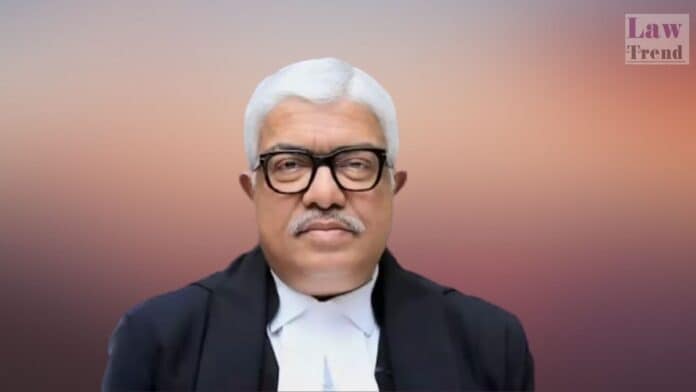Justice Atul Sreedharan, bidding adieu to the Madhya Pradesh High Court following his transfer to the Allahabad High Court, quoted an Urdu poem on Thursday, stating, “Jo aaj sahib-e-masnad hain kal nahi honge (those who are sitting on the throne today, will not be there tomorrow).” His farewell speech and the subsequent reactions from the Bar have highlighted concerns over the frequency of his transfers and alleged executive interference in the process.
Justice Sreedharan was transferred to the Allahabad High Court on October 18. This decision came shortly after the Supreme Court Collegium acceded to a request from the government to not transfer him to the Chhattisgarh High Court, as had been previously recommended. This latest move marks his third transfer in recent months. He was previously transferred from Madhya Pradesh to the Jammu & Kashmir and Ladakh High Court in April 2023, following his own request due to his daughter entering law practice in Madhya Pradesh. He was subsequently transferred back to his parent High Court in Madhya Pradesh in March of this year.
The transfer to Allahabad High Court, where he will be number seven in seniority, follows a recommendation for Chhattisgarh High Court where he would have been part of the Collegium, similar to his position in Madhya Pradesh.
Justice Sreedharan’s Farewell Address
Speaking at the farewell reference in Jabalpur, Justice Sreedharan described transfers as an “incident of service” and stated he was “excited and looking forward to serving at Allahabad High Court, the largest High Court in the country.”
However, he also quoted the Urdu poet Rahat Indori to express his thoughts, stating, “The only thing permanent in universe is impermanence… Jo aaj sahib-e-masnad hai kal nahi honge (those who are sitting on the throne today, will not be there tomorrow), kiraaye daar hain zaati makaan thodi hai (they are renters, it is not their house).”
Justice Sreedharan expressed gratitude to Chief Justice Sanjeev Sachdeva for the “peaceful” “short second stint” at the High Court. “He embodies the very notion of a people’s judge, learned yet humble, polite yet firm, accommodative yet resolute,” Justice Sreedharan said.
He also thanked the Bar for “tolerating his second innings” and credited his “gurus,” Senior Advocates Gopal Subramanium and Satyendra Kumar Vyas, for his development as a judge. “I have no doubt in my mind when I say that the Bar is the most powerful sentinel for the Bench,” he remarked, emphasizing the need for a cordial Bar-Bench relationship to preserve “constitutional values.”
Bar Associations Raise Concerns Over Judicial Independence
Leaders from the Bar associations explicitly spoke against the repeated transfers and the circumstances surrounding them.
Sanjay Agrawal, President of the High Court Advocates’ Bar Association, Jabalpur, stated, “Such frequent transfers, even though guided by administrative exigencies, inevitably disrupt the continuity of justice and the building of a stable judicial environment.” He noted the “loss of consistency in adjudication” for litigants and the challenge for the Bar.
Agrawal directly addressed the government’s role in the reconsidered transfer from Chhattisgarh, stating, “This development brings to light the larger issue that concerns the very independence of the judiciary… the sanctity of transfer of judges of the High Court must remain free from any executive interference.” He added, “any perception of external influence in such matters risks undermining the faith of people in the impartiality of our institutions.”
Pawan Pathak, President of the High Court Bar Association (Gwalior), said the repeated transfers indicated “unwanted pressure.” He stated that the Association “condemns the same and stands for the independence of the judges.”
Judicial Career
Justice Sreedharan began his career in 1992 in the chamber of Gopal Subramanium. He practiced independently in Delhi before shifting to Indore in 2001, where he worked closely with Satyendra Kumar Vyas. He also served as a Panel Advocate and Government Advocate for the State of Madhya Pradesh. He was appointed as an additional judge of the Madhya Pradesh High Court on April 7, 2016, and became a permanent judge on March 17, 2018.




